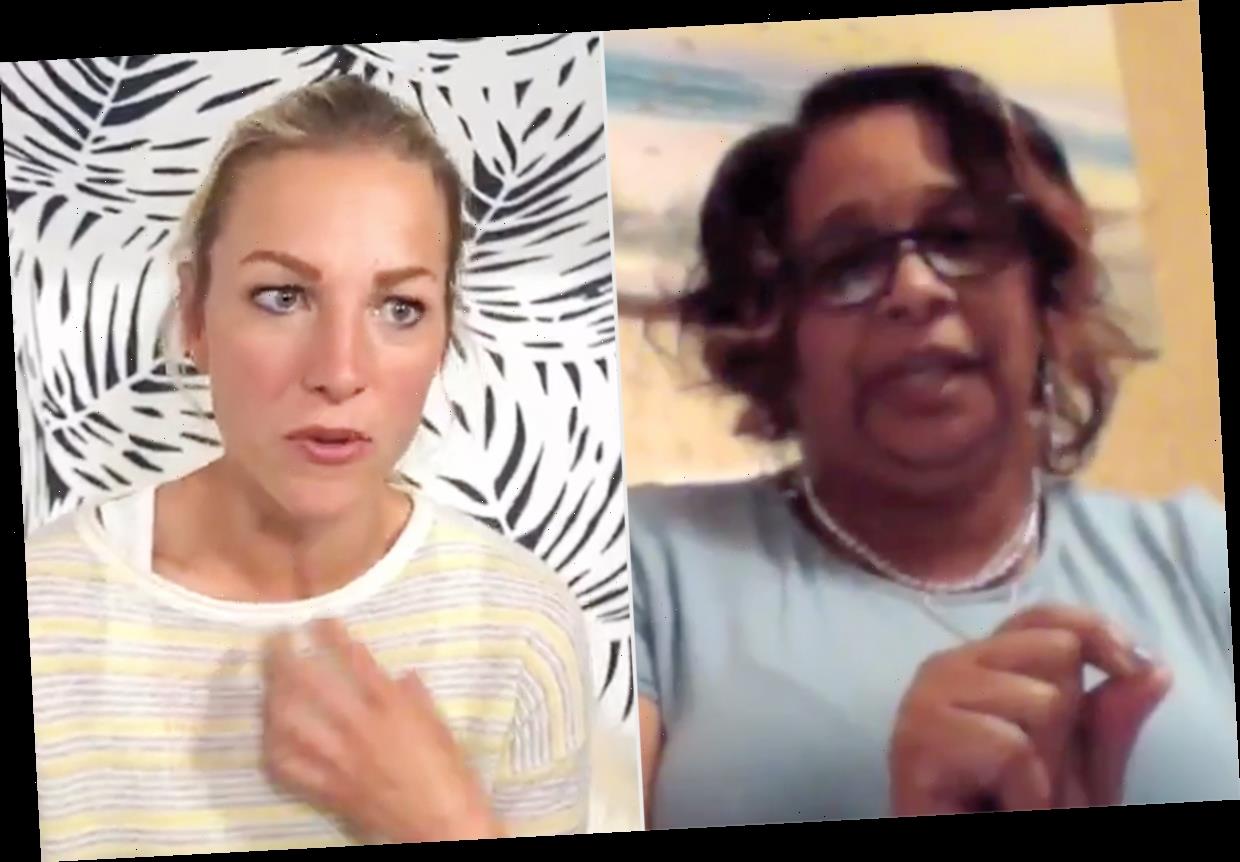Craig Melvin's wife, Lindsay Czarniak, is taking the time to learn about her husband's roots by sitting down with his mother, Betty Jo Melvin, for an honest conversation about race.
Czarniak shared her three-part video series on Instagram this week, in which she spoke with her mother-in-law about "uncomfortable" topics such as growing up in South Carolina the 1960s, raising black sons and what it was like to learn that her son was dating a white woman.
Craig — who shares son Delano, 6, and daughter Sybil, 3, with Czarniak — said he was "very proud" of the conversation his mother had with his wife and urged everyone to listen in to the full series.
During one of the episodes, the sports anchor, 42, asked Betty Jo to reflect on the moment she found out that she and her son were dating.
“He had to tell me that you were white,” Betty Jo recalled to Czarniak. “I don’t even know how it came up, y’all had been dating a while and it came up!”
Betty Jo told Czarniak that she wasn't at all taken back by the color of her skin, explaining that she raised her boys to "not see color."
"I told him that love has no color, that your skin color doesn’t matter, as long as you loved him and he loved you,” Betty Jo said. “The color of your skin has nothing to do with who you are on the inside.”
She went on to share what it was like to raise her two sons, explaining that, as black men, she had to push them to work harder if they wanted to be successful.
"Even in this world, they have to compete a little bit harder," Betty Jo explained. "They can't do the same things and get the same results as someone that has the same qualifications that they have if he's white or someone else. So you teach your children from when they're younger that I need you to be more. You have to push them hard."
Betty Jo recalled having a difficult childhood growing up as a black person in Lexington County, South Carolina in the 1960s.
"I walked to school as children would spit out of the windows on the bus," she remembered.
"We were taught how to act a certain way and what not to do to provoke anybody. That's how I grew up," she said. "I also grew up with the KKK … and I grew up when the bathrooms said 'Blacks only' and 'Whites only.'"
Asked about her feelings on the police as a child, she said she was always taught to "respect policemen."
"You stay in your place, and you had a place," she told Czarniak. "Was I afraid of the police? Probably. I didn't see police like children see police now, [that] they're there to help you. I didn't see police like that as a black child."
The pair's conversation comes amid a turbulent time in the nation as hundreds of protests against police brutality and racial injustice have emerged in all 50 states, following the killing of George Floyd.
George was killed on May 25 after former Minneapolis police officer Derek Chauvin held his knee on George's neck for nearly nine minutes while other officers held George's body down.
George was recorded saying repeatedly that he couldn't breathe, then he fell still with Chauvin still kneeling on him.
Chauvin has been charged with second-degree murder and second-degree manslaughter; three other officers at the scene have also been charged with second-degree manslaughter and aiding and abetting a second-degree murder.
None of the four have entered pleas.
To help combat systemic racism, consider learning from or donating to these organizations:
• Campaign Zero (joincampaignzero.org) which works to end police brutality in America through research-proven strategies.
• ColorofChange.org works to make government more responsive to racial disparities.
• National Cares Mentoring Movement (caresmentoring.org) provides social and academic support to help black youth succeed in college and beyond.
Source: Read Full Article

